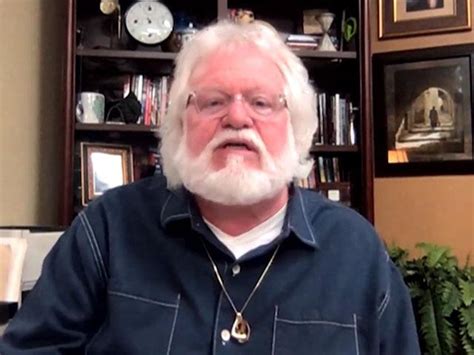A Quote by Dutch Sheets
The only logical answer to the question of why Elijah needed to pray is to imply that God has chosen to work through people. Even when it is the Lord himself initiating something, earnestly desiring to do it, He still needs us to ask.
Related Quotes
Do not we rest in our day too much on the arm of flesh? Cannot the same wonders be done now as of old? Do not the eyes of the Lord still run to and fro throughout the whole earth to show Himself strong on behalf of those who put their trust in Him? Oh, that God would give me more practical faith in Him! Where is now the Lord God of Elijah? He is waiting for Elijah to call on Him.
Prayer brings to us blessings which we need, and which only God can give, and which prayer can alone convey to us ... This service of prayer is not a mere rite, a ceremony through which we go, a sort of performance. Prayer is going to God for something needed and desired. Prayer is simply asking God to do for us what he has promised us he will do if we ask him ... Asking is man's part. Giving is God's part. The praying belongs to us. The answer belongs to God.
God alone fully understands what each one of us needs; we make mistakes continually and pray for things which would be harmful to us if we received them. Afterwards we see our mistakes and realize that God is good and wise in not giving us these things, even though we plead ever so earnestly for them.
Every once in awhile, find a spot of shade, sit down on the grass or dirt, and ask yourself this question: “Do I respect myself?” A corollary to this question: “Do I respect the work I’m doing?” If the answer to the latter question is NO, then the answer to the former question will probably be NO too. If this is the case, wait a few weeks, then ask yourself the same two questions. If the answers are still NO, quit.
Helen Rosevere was a British medical missionary in the Congo years ago during an uprising. Her faith was strong and her trust was confident, yet she was raped and assaulted and treated brutally. Commenting later, she said, "I must ask myself a question as if it came directly from the Lord, 'Can you thank Me for trusting you with this experience even if I never tell you why?'" What a profound thought. God has trusted each of us with our own set of unfair circumstances and unexplained experiences to deal with. Can we still trust in Him even if He never tells us why?
The Lord gave the wonderful promise of the free use of His name with the Father in conjunction with doing His works. The disciple who lives only for Jesus' work and kingdom, for His will and honor, will be given the power to appropriate the promise. Anyone grasping the promise only when he wants something very special for himself will be disappointed, because he is making Jesus the servant of his own comfort. But whoever wants to pray the effective prayer of faith because he needs it for the work of the Master will learn it, because he has made himself the servant of his Lord's interests.
Praise causes the presence of the Lord to come into our midst. Even though God is omniscient, He manifests His authority and rule in our environment when we praise Him. When we praise, God comes in and leads us forth... He does not just visit us, but He abides and aligns Himself with us to walk with us into the path that He has chosen for us.
Now, I wish to encourage those who are in the midst of hard trials, who feel their faith may be fading under the onslaught of troubles. There seems to me no better answer to the question of why trials come and what we are to do than the words of the Lord Himself, who passed through trials for us more terrible than we can imagine.
Spiritual lust--'I must have it at once'--causes me to demand an answer from God, instead of seeking God himself who gives the answer. Is today 'the third day' and He has still not done what I expected? Whenever we insist that God should give us an answer to prayer we are off track. The purpose of prayer is that we get a hold of God, not of the answer.
If you ask a living teacher a question, he will probably answer you. If you are puzzled by what he says, you can save yourself the trouble of thinking by asking him what he means. If, however, you ask a book a question, you must answer it yourself. In this respect a book is like nature or the world. When you question it, it answers you only to the extent that you do the work of thinking an analysis yourself.



































